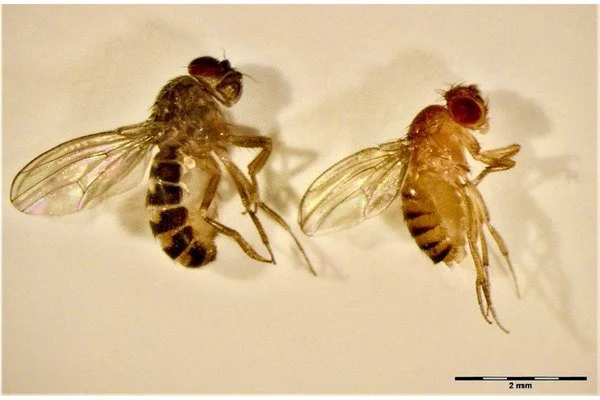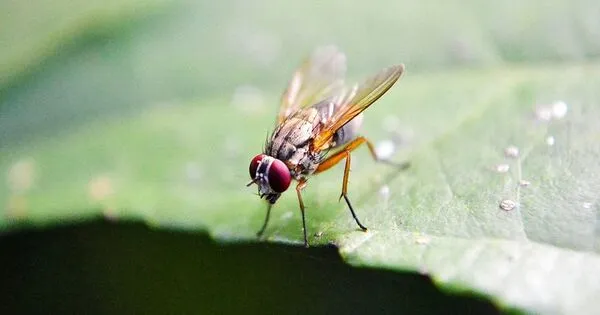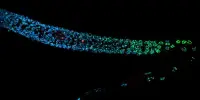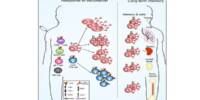Fruit flies (Drosophila melanogaster) have been widely used in scientific research for many years due to their short lifespan, rapid reproduction, and genetic similarities to humans. Their application in the study of various biological processes has yielded valuable insights into human health and disease.
According to research, the natural peptide drosocin protects fruit flies from bacterial infections by binding to bacterial ribosomes. Drosocin binds to the ribosome and prevents it from producing new proteins.
Scientists at the University of Illinois Chicago discovered that a peptide from fruit flies could lead to new antibiotics. Their findings, published in Nature Chemical Biology, show that the natural peptide drosocin protects the insect from bacterial infections by binding to ribosomes in bacteria. Drosocin, once bound, prevents the ribosome from performing its primary function of producing new proteins, which cells require to function.
Drosocin and its active mutants made inside the bacteria forced bacterial cells to self-destruct. While drosocin and apidaecin peptides function similarly, the researchers discovered that their chemical structures and ways of binding to the ribosome differ.
Alexander Mankin
Protein production can be halted by interfering with various stages of translation – the process by which DNA is “translated” into protein molecules. The UIC researchers discovered that drosocin binds to the ribosome and inhibits translation termination when the ribosome reaches the stop signal at the end of the gene.
“Drosocin is only the second peptide antibiotic known to stop translation termination,” said Alexander Mankin, study author and Distinguished Professor from the Center for Biomolecular Sciences and the department of pharmaceutical sciences in the College of Pharmacy. The other, called apidaecin and found in honeybees, was first described by UIC scientists in 2017.

Through the screening of organisms from various environments, numerous natural products, including antibiotics, have been discovered. Despite their small size, fruit flies can support a wide range of microorganisms, some of which produce antibacterial compounds. Scientists can look into the compounds produced by these microorganisms to see if they have any potential as antibiotics.
The UIC lab, co-led by Mankin and Nora Vázquez-Laslop, a research professor in the College of Pharmacy, was able to produce the fruit fly peptide and hundreds of its mutants in bacterial cells.
“Drosocin and its active mutants made inside the bacteria forced bacterial cells to self-destruct,” Mankin explained. While drosocin and apidaecin peptides function similarly, the researchers discovered that their chemical structures and ways of binding to the ribosome differ.”
“We hope to leverage the same mechanism for potential new antibiotics by understanding how these peptides work.” “Comparing the components of the two peptides side by side allows us to engineer new antibiotics that take the best from each,” Mankin said.
















